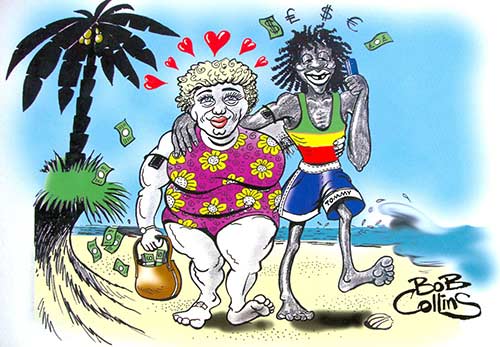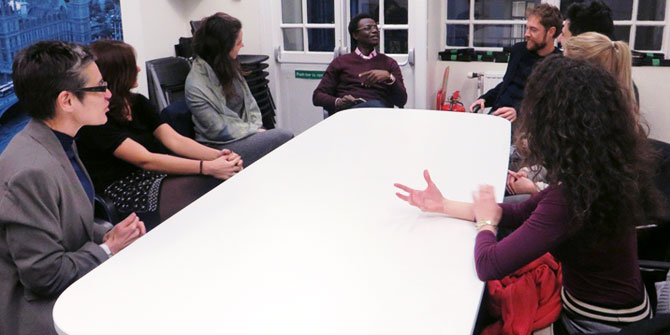Ben Nadler looks back on the inaugural LSE-UCT July School in Cape Town.
England, Ireland, the Netherlands, Denmark, Norway, France, Italy, Germany, Ukraine, Mexico, the United States, Taiwan, China, Nigeria, Kenya, South Africa, Zambia, Malawi, Zimbabwe, Mauritius.
These are just a few of the countries, the ones that I can remember, that were represented at the LSE-UCT July School in Cape Town, the first LSE short programme of its kind to be held in Africa. The varied range of cultural backgrounds among the students and professors gave an incredible depth and diversity to the topic that we had all come to discuss: the problems facing development in Africa.

Running from Sunday June 30 until Friday July 12, the two-week courses all focused on different aspects of this same question. Some focused on entrepreneurship and business model development in troubled regions. Some focused on poverty and the cyclical disenfranchisement of the bottom millions. Some focused on economic history and the lingering impact of imperialism. Some focused on the role of democracy and the state in fostering or frustrating change. But all found an exchange of ideas and information that challenged the prevailing narrative of development in Africa.
In the course, The State, Democracy, and Development in Africa, taught by Professor Thandika Mkandawire and Frederick Laker, we examined the development of the modern African state and the changing notions of what good governance means in Africa. After gaining independence in the 1960s and 70s, many major African governments consisted of a consolidated central authority often led by revolutionary figures like Jomo Kenyatta in Kenya or Seretse Khama in Botswana. By the 1980s, when the economic rise of many nations was reversed, African governments were widely condemned as “lame leviathans” or “vampire states,” and the downsizing of government was seen as the prescription for development in Africa, a plan of action that met with disastrous results. Today, however, a strong yet democratically elected central authority is once again considered by many as necessary to spurring development, and this course laid the foundation for a new way of thinking about the role government can and should play in setting a country on a path towards growth.
But what happened inside the classroom was only half the story of this programme. The other half was a profound and wild introduction to an amazing African city, with a new squad of friends from around the globe at the helm.
Weekend excursions included a trip to the Cape of Good Hope, the most southern point in Africa, to see penguins clumsily waddle along the white sand beaches. Then there was the romp through the beautiful valleys and hills of Stellenbosch to taste the best wines that South Africa had to offer. Just behind the University of Cape Town campus lies Table Mountain, and the cable car ride to the top offered spectacular 360-degree views of downtown Cape Town and the surrounding beach domain. There were the restaurants and bars of Camps Bay or Long Street. The shops and vendors of the Green Market and the Biscuit Mill. Cage diving with great white sharks in the infamous Shark Alley. The ferry to Robben Island. District 6 museum. A barbecue dinner in a township. Paragliding. Kite Surfing. Dinner at the V & A Waterfront. Every way you looked there were sparks, sparks of adventure and life that thrive in this vibrant African port.
And at the end of two weeks, I didn’t want to leave. I didn’t want to leave the class because I was learning so much. I didn’t want to leave the town because I had grown to love it and feel at home. I didn’t want to leave my friends, who would soon return to various and far-flung corners of the world. But as the saying goes, all good things must come to an end, and this end is the beginning of new friendships, new adventures, and a new way of thinking about the place where it all began: Africa.
Ben Nadler is pursuing a Masters degree at the School of Journalism at the University of Missouri, Columbia.






Cape Point is not the most southern point in Africa. That is Cape Agulhas. Cape Point in the most south-eastern point. 🙂
very true!!
This is Ben Nadler, the author of this story. Thanks very much for that correction Gerard.
I just want to say thank to LSE for such an opportunity.Thank you Professor Thandika Mkandawire and Mr. Fred Laker.
Reading this brought back some great memories!
It was a pleasure meeting you Ben. Cape Town indeed rocked! Thank you Professor Thandika Mkandawire and Mr. Fred Laker.
Ben great blog… It was great sharing the amazing experience with you in Professor Thandika’s class! It was an amazing memorable experience that goes beyond words and hope we will all utilize the networks we made and stay in contact with each other!
Thanks for remembering Taiwan!!! Since I am the only student from Taiwan!!!
Afrocrats were simply manufactured here!
attending the LSE UCT summer school was an incredible experience.
Very True!!!
This Programme changed me and my career for good. Thanks to LSE and University of Cape Town for believing in me!